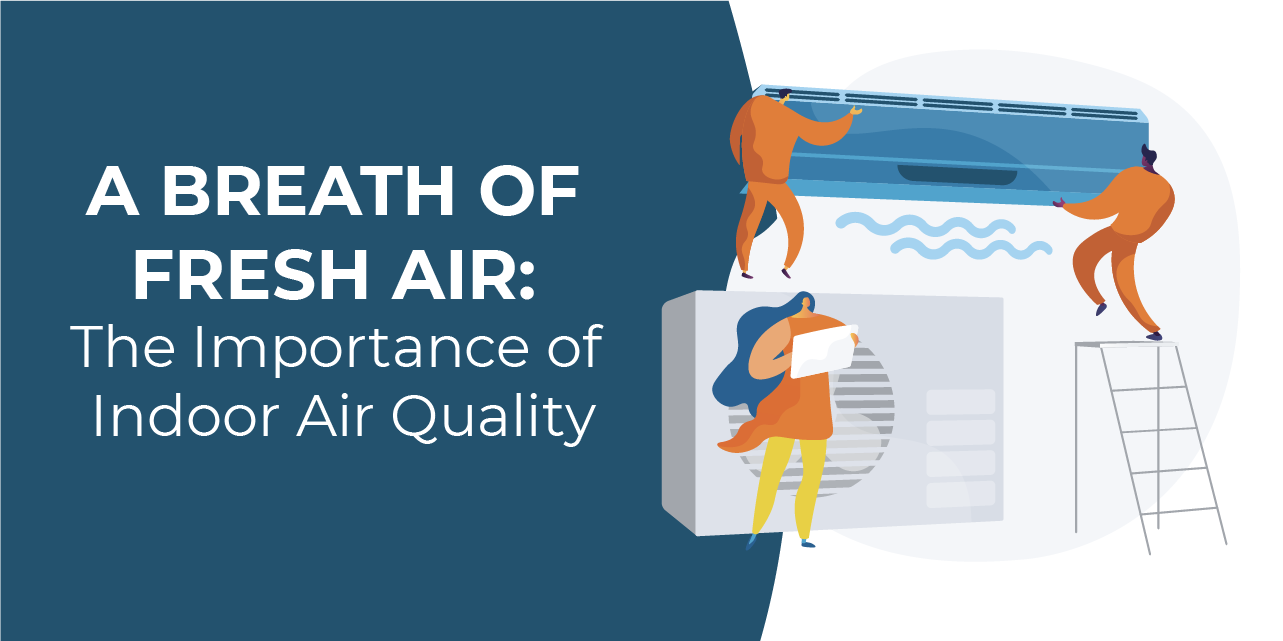As the colder months set in, you may find yourself spending more time indoors. But, as you seal up your home to keep out the cold and conserve energy, it’s easy to forget about the quality of the air that’s being locked inside with you. After all, even if the energy you’re using is 100% clean, it doesn’t mean the air inside your home is.
Maintaining good indoor air quality is extremely important when it comes to your health and well-being, especially during the winter. Since you’ll be inside more often, you may end up breathing in more allergens, dust and other harmful bits of matter that can affect respiratory health and your overall comfort.
However, you can follow these five simple and easy steps to ensure the air you’re breathing in your home is fresh and free of pollutants:

Keeping a regular cleaning regimen can do wonders for your home’s air quality. By dusting, vacuuming and mopping your home on a regular basis, you can minimize the amount of particles in the air. Remember to clean and wash things like bedding, curtains and furniture covers, and use eco-friendly cleaning supplies when you can.

Although it’s natural to keep everything closed during the winter to avoid letting the heat out, regularly ventilating your home by opening windows and doors is a great way to exchange stale indoor air with fresh outdoor air. It only takes a few minutes, and you can wait until one of the warmer winter days to avoid letting in too much cold air.

One of the most important things you can do every winter (and every summer as well) is ensure that your heating, ventilation and air conditioning system is checked out by a professional. Additionally, you should make sure that you regularly change the air filter . A clogged or dirty air filter makes your HVAC system less green and energy-efficient while also blowing dust and debris through your vents.

Ever notice how you get dry skin and chapped lips during the colder months? That’s because dirt particles aren’t the only things that can make indoor air uncomfortable during the winter. The extreme dryness of the air itself also contributes to the reduction of indoor air quality. You can use a fan-powered humidifier to distribute moisture into the air to mitigate these issues. Adding humidity to your home in the winter can also help:
- Reduce static electricity.
- Prevent dry throats and nasal passages.
- Control dust mites and particles in the air.
To keeps things eco-friendly, look for humidifiers with biodegradable paper filters, automatic controls and energy-efficient settings.

Consider investing in an air purifier and some HEPA (high efficiency particulate air) filters. These devices can effectively capture and remove particles like dust and pet dander. Depending on the size of your home, you may want to get more than one. These can also be used year-round since they’re very effective at removing pollen from the air in spring and summer.
As you huddle inside to stay warm for the winter, do your best to remember the importance of breathing clean, fresh air. Improving indoor air quality can significantly impact your health and overall comfort during the colder months. By incorporating simple measures like proper ventilation, HVAC maintenance and regular cleaning, you can create a healthier living space that supports your well-being throughout the winter.
The air shouldn't be the only clean thing in your house. Keep your home powered with 100% clean energy.
Enter your ZIP code to get started.







